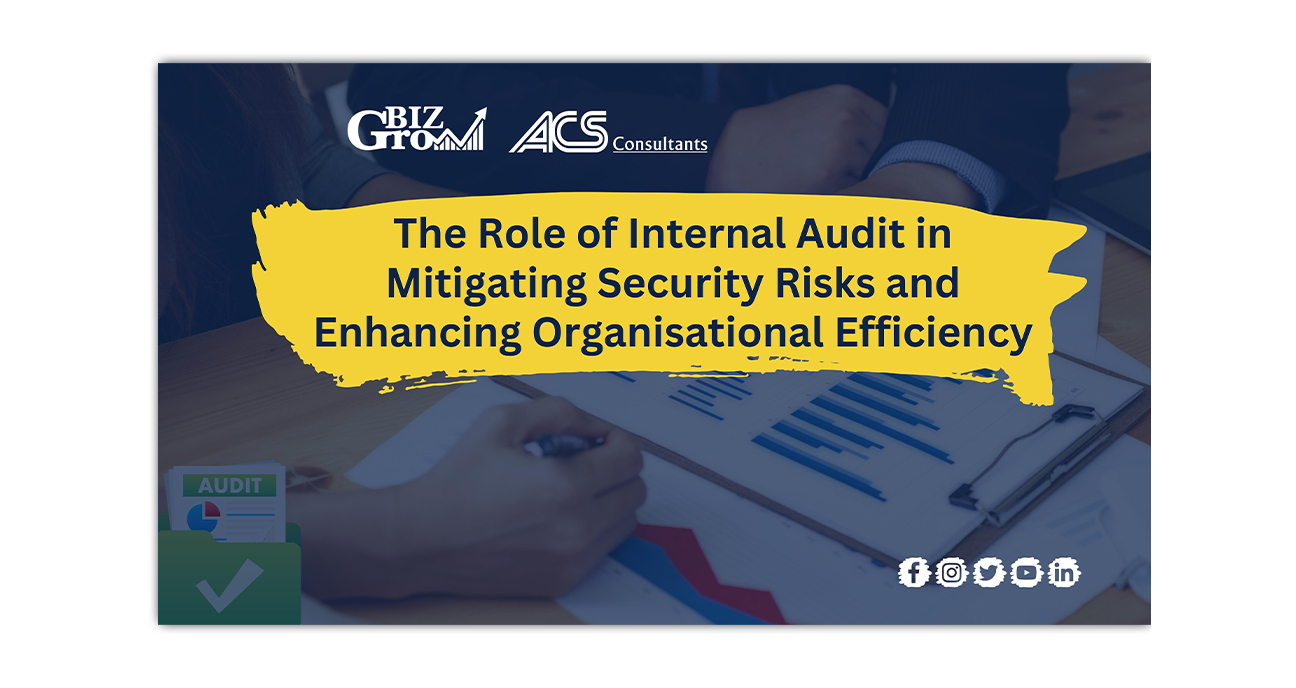Introduction:
Internal audit evaluates and improves an organisation’s risk management, control, and governance processes. This essential function is typically carried out by a dedicated internal audit department or team within the organisation. The main goal is to ensure that risks are identified, assessed, and managed correctly, providing assurance to management and the board of directors. Internal auditors carefully review different areas of the organisation such as operations, processes, and systems to ensure they are operating efficiently, effectively, and in compliance with laws, regulations, and internal policies.
Key responsibilities of the internal audit function typically encompass the following:
Risk Assessment: Identifying and assessing a wide spectrum of risks faced by the organisation, encompassing operational, financial, and compliance risks.
Audit Planning: Developing an annual audit plan based on the identified risks and the organisation’s strategic objectives.
Field Work: Conducting audits and reviews of various functions, processes, and operations within the organisation. This entails gathering and scrutinising data, conducting employee interviews, and testing controls to assess the adequacy and effectiveness of risk management and control processes.
Compliance Verification: Ensuring strict compliance with applicable laws, regulations, and internal policies and procedures.
Reporting: Communicating audit findings and recommendations to the organisation’s management and presenting them to the board of directors through comprehensive written reports.
Follow Up: Monitoring the implementation of audit recommendations and assessing the progress made in addressing identified issues.
Internal audits are important for evaluating an organisation’s internal controls, identifying areas for improvement and potential risks. This function contributes significantly to enhancing transparency, accountability, and risk management within the organisation. The roles and responsibilities of an internal audit function can vary depending on factors like the size of the organisation, industry, and regulatory requirements.

Internal Audit’s Contribution to Decreasing Security Risks:
Internal audit can make a substantial contribution to reducing security risks within an organisation through the following avenues:
Risk Assessment: Internal auditors conduct in-depth risk assessments, identifying potential security risks and vulnerabilities. By pinpointing the specific risks the organisation faces, internal audit helps prioritise security efforts on critical areas, ensuring a targeted and effective approach.
Control Evaluation: Internal audit assesses the effectiveness of internal controls related to security measures. This includes evaluating access controls, data protection measures, incident response procedures, and other security-related controls. By identifying control weaknesses or gaps, internal audit can recommend enhancements to mitigate security risks effectively.
Compliance Monitoring: Internal auditors rigorously verify compliance with security-related laws, regulations, and internal policies. This ensures that the organisation adheres to relevant security standards and requirements. By continually monitoring compliance, internal audit helps prevent security breaches and non-compliance with security regulations.
Security Awareness: Internal audit can play a pivotal role in promoting security awareness and training programs within the organisation. Teaching staff about security practices and risks reduces mistakes and improves security.
Incident Response: The effectiveness of the organisation’s incident response processes and procedures is assessed by internal audit. This includes reviewing how security incidents are detected, reported, investigated, and remediated. Internal audit improves organisation’s incident response to security incidents by identifying weaknesses.
Continuous Monitoring: Internal audit can establish continuous monitoring processes to detect and respond to emerging security risks. This may involve implementing automated monitoring tools and techniques to identify suspicious activities, unusual patterns, or vulnerabilities in real-time.
Benchmarking and Best Practices: Internal audit conducts comparisons of the organisation’s security practices against industry standards and best practices. This helps identify areas where the organisation may need improvement to align with leading security practices.
Conclusion:
The internal audit function can help lower security risks by assessing, monitoring, and improving security controls and practices. Internal auditors identify vulnerabilities, recommend enhancements, and promote a proactive security posture within the organisation. By providing an independent and objective evaluation, internal audit serves as a critical component in enhancing organisational security and efficiency, ultimately safeguarding the organisation against security threats and enhancing overall operational effectiveness.
ACS Consultants helps businesses get certifications like ISO9001:2015, SIA-ACS BS7858, SafeContractor, Internal Audit Services, and more. ACS Consultants has a team of skilled Internal Auditors who are experienced and knowledgeable in the latest trends and best practices in their fields. ACS Consultants work closely with organisations to create tailored solutions that align with each organisation’s unique needs and requirements.
Let our experts coordinate you through the process!


